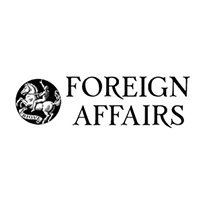For more than seven decades, the twin commitments by the United States and its allies to democracy at home and internationalism abroad animated the so-called liberal order. In recent years, however, the system has faced a growing crisis. Transitions toward democracy in Russia, Turkey, and southeast Asia stalled. The states caught in the rush of the Arab Spring failed to democratize as their citizens hoped.
 Now, this crisis of democracy is penetrating the core of the liberal order. Growing economic inequality and a backlash against political liberalism have left the United States and the United Kingdom internally divided. In democracies across Asia, Europe, and Latin America, social and political divisions are rife, public trust in institutions is low, and the role of science and facts in shaping public policy is under attack.
Now, this crisis of democracy is penetrating the core of the liberal order. Growing economic inequality and a backlash against political liberalism have left the United States and the United Kingdom internally divided. In democracies across Asia, Europe, and Latin America, social and political divisions are rife, public trust in institutions is low, and the role of science and facts in shaping public policy is under attack.
Reviving the liberal order means accepting first that the crisis has come from within. Its problems are rooted in the deep economic inequalities in Western states themselves. As the Biden administration appears to recognize, it will be possible to restore that order and the global influence of liberal democratic values only if democracies first rebuild at home. Above all, these states must adopt a new domestic social contract that meets the demands for inclusion that are the hallmark of the twenty-first century.
Leaders across Europe have welcomed Biden’s election because of his commitment to restore U.S. engagement with established institutions and to reintegrate Washington into more recent multilateral frameworks, such as the Paris climate accord and the Open Skies Treaty. But U.S. allies are wary of the United States’ staying power. There is little to reassure Europeans that the United States’ international role has permanently returned to the status quo ante. Many fear that U.S. foreign relations will continue to be defined by dramatic swings from conditional multilateralism to assertive unilateralism. The EU’s decision to complete a bilateral investment agreement with China just three weeks before Biden’s inauguration revealed the extent to which European governments believe they will occasionally need to prioritize their own tactical interests over loyalty to the transatlantic alliance.
The article's full-text is available here.

 Author:
Author:









